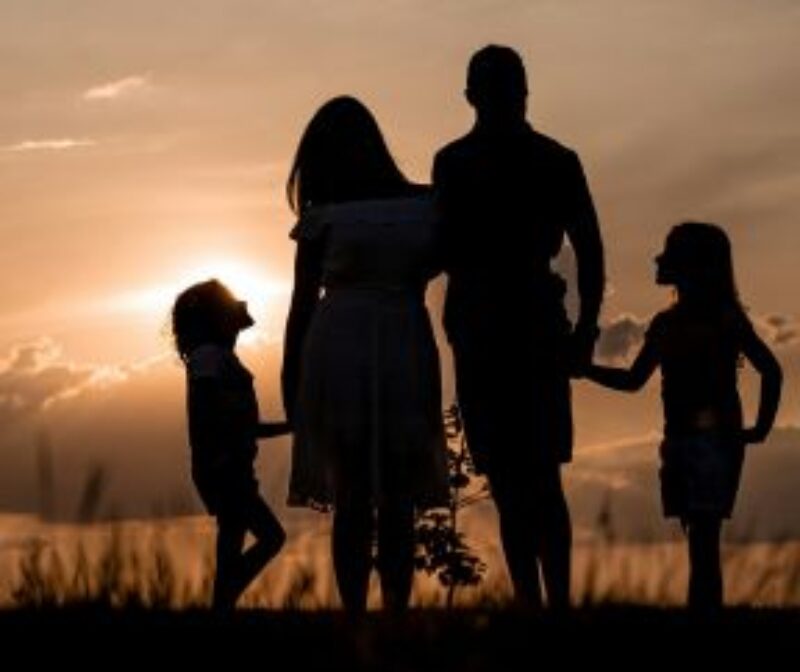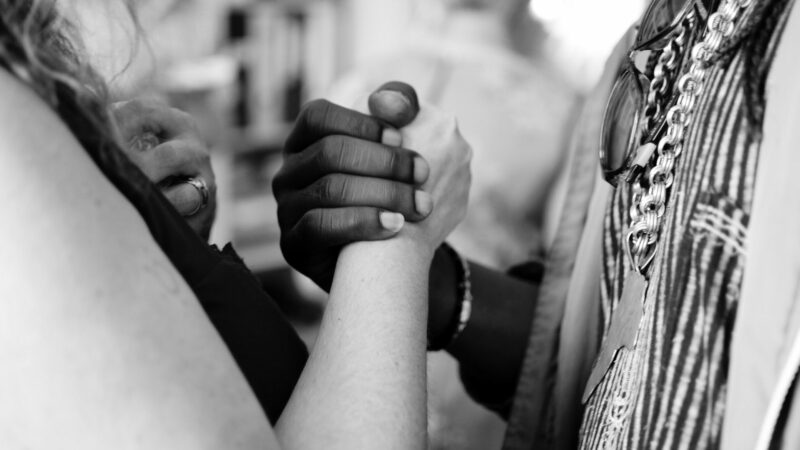Photo by: Aarón Blanco Tejedor on Unsplash
Lament is the deep anguish we feel when those things of most significance are lost, marred, or destroyed. This is a time of profound lament for our country. Not only are we reeling from the loss of life and threat of a global pandemic, but the mounting pressure of racial injustice has erupted and burst beyond the point of denial.
Feelings are running deep and wide. Anger. Fear. Confusion. Grief. Rage. These are important signals that deserve our attention. Just like the warning lights on a car, they indicate that something is very, very wrong and requires urgent attention. Personally and collectively, we need to pull over, look under the trunk, and fix what’s wrong.
Emotions are an important part of thriving. They help us attune to what is right and what is wrong.
They also can serve to bond or even divide us. However, when emotions spike and especially when they are shared broadly, big emotions can take on a life of their own. The key to thriving is not just to feel the emotions, but respond to these emotions wisely.
In this current moment, a throbbing vein of ongoing violation and disregard has been burst. We are bleeding out—as individuals and as a society. For some:
- We are reeling in the pain of violation and loss.
- We are reeling in vicarious pain of witnessing the desecration of brothers and sisters.
- We are reeling in pain for realizing we are more complicit in these systemic atrocities than we realized.
- We are reeling from the lack of vision and certainty for the future.
When we feel such profound pain, sadness and anger grip us tightly—the experience is gut wrenching and jaw clenching. Pain that evokes such a physical response is worthy of our attention and energy. These days, our contorted feelings and bodies mirror the societal contortions being lived out among us and testify to the deep violations and injustices we are experiencing.
Although reeling in pain is part of a process of healing and change, it is not the end point. Lament is a response to our most profound sorrows, allowing us to consciously engage our loss and sorrow in a proactive way and directing us towards those things that matter most.
Lament calls us to awaken to the meaning of our losses, to align our hearts with others sharing these losses, and to point us towards our purpose.
When I feel heavy hearted and find myself wondering if I might break down, I turn to prayer with images or movement, which sometimes enables me to break open to what is being asked of me at that moment, rather than just break down in overwhelming grief and sorrow. I developed this exercise for a group of contemplative neuroscientists, and have continued to find it effective in helping me hold the complexity of life in my mind and heart during times of despair.
Take a moment to extend your arms in front of you and open your hands in a meditative or prayerful way.
Imagine one hand holding those things which bring you profound sadness, anger, and grief at this time. What are the things that are destroyed, violated, and threatened? Feel the weight of what that hand holds. What are the beliefs that undergird those feelings? What does the weight of that hand say about what matters most to you? What shape or gesture do you want to make with that hand? How do you physically gesture lament?
On the other hand, imagine holding all for which you are grateful, all that brings joy and delight. Contemplate your best strengths and abilities in that hand, and envision those closest to you who you trust. Think about who and what gives you hope, even if it’s just a shard of hope today. What gesture or shape do you make with this hand?
Look at your two hands: one full of your deepest sorrows and one full of profound joy.
Allow yourself to feel the weight of what they bear. Which is heavier? Why? As you raise your hands, offer these joys and sorrows and be mindful of what matters most. Be mindful of raising your hands in solidarity with others. To complete the exercise, clasp your hands together to symbolize the fullness and complexity of life and acknowledge all that it takes to bear these joys and sorrow. Finally draw your hands together towards your hear and take a moment to ask what these complexities invite you to.
Lament allows us to recognize how deep and overwhelming feelings can be and to intentionally contemplate what these feelings are directing us to do in response. Lament allow us to feel deeply and motive us to act in ways that address our grief, right the wrong, and console our sadness. In other words, carefully and consciously, we need to allow the pain, anger, sadness, and grief to ripple through us and draw us to our foundational beliefs and values about justice and human life. We need to allow those feelings to shake us to action and to take steps that align our beliefs, our actions, and our society around the inalienable rights of all our brothers and sisters.
These are extraordinary and excruciating times. We have been given the privilege to live and lead through it. May we see this time as an opportunity to summon the very best within ourselves. May we see it as a time, in which we must summon the best in other people. May the difficult emotions serve to stir us to life giving action. Part of the reality of thriving is living into the fullness of life within the realities of constraints in our surroundings.
Thriving is never easy, but it’s good. It embraces all of life—the good, the bad, and the ugly.
Thus, suffering is part of any journey to thriving. Lament is a constructive way to embrace the suffering. It aligns our emotions and beliefs, and invites us to action.
Lament is a passionate expression of grief, and we see this as people lift their voices and act for change. This week, we are aware that our lament is woven into a much bigger story than our own. This does not minimize our grief or suffering, but gives it greater meaning—as our own particular experiences and as a means of participating in a movement of change. In this way, we are called to lift up both hands—one with gratitude for the power of coming together and the other lamenting for that which has been destroyed or which we still long for (equality and justice). We are not called to do this alone. At times, our grief, sorrow, and anger can be too much to bear alone. As a community, we must lift our hands together—both in lament and gratitude.
Race is not intended to be a prison, which restricts and confines, but a prism that refracts the diversity, beauty, and vitality of God’s beloved.
See the beauty of diversity in all people in this world. Hold to a vision and practices of inclusion that lead to liberation of all persons to become their best selves for others.
Let this era not be known for a people who survived through their fight and flight instincts, but rather thrived through love and brought light.
Continue Exploring

Resilience
Building Family Resilience
Can studying missionary families teach us about building resilience in our own families? Thrive Fellow, Abby Schmidt explains her findings.

Practices
A Practice: Courageous & Curious Conversations toward Mutuality
When seeking mutuality in relationships, courageous and curious conversations are necessary. Here's a practice to guide you.

Practices
Power Dynamics in Relationships
Power dynamics affect how we engage with our loved ones. Learn how to get curious and courageous to develop mutuality in relationships.
